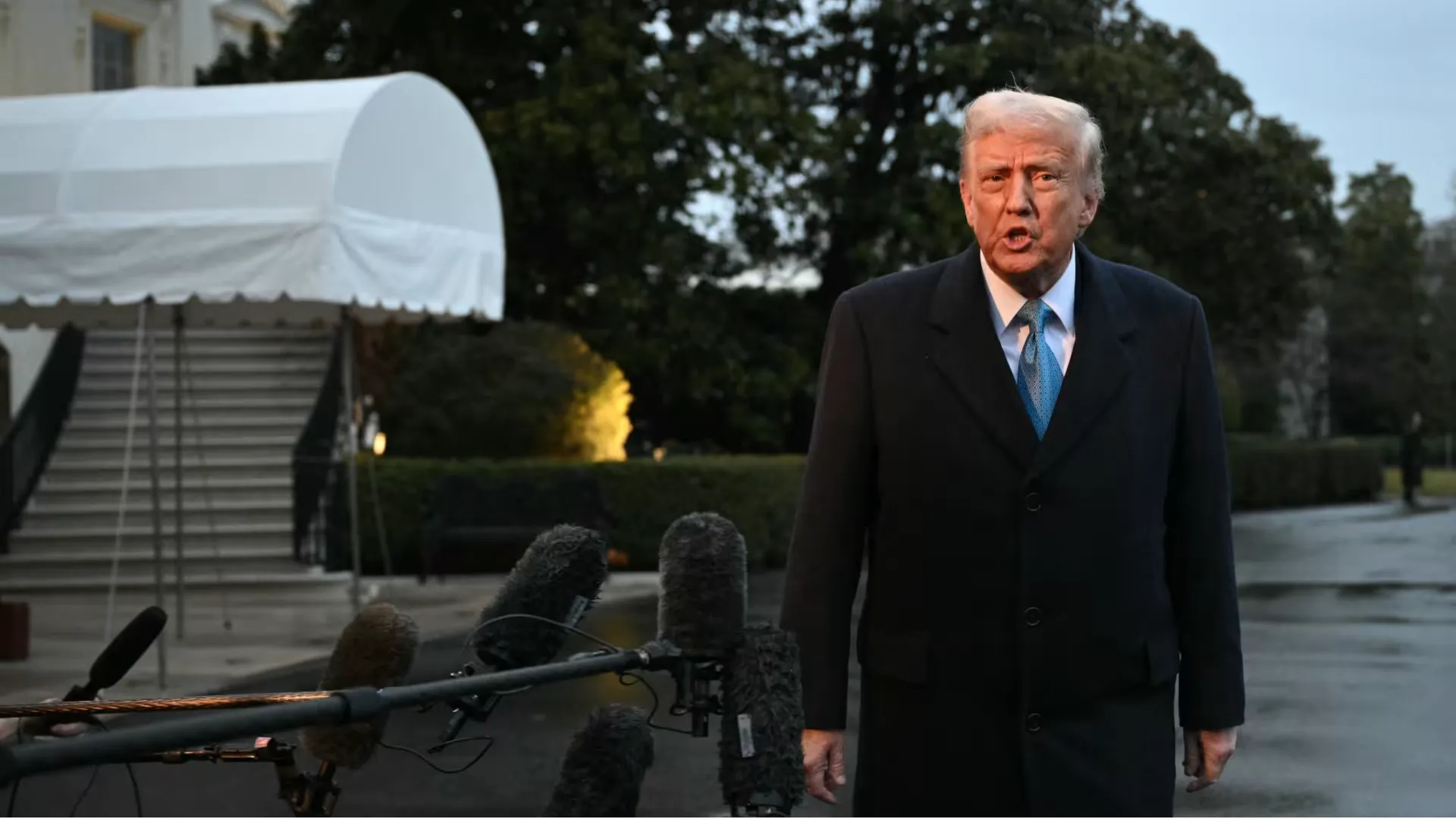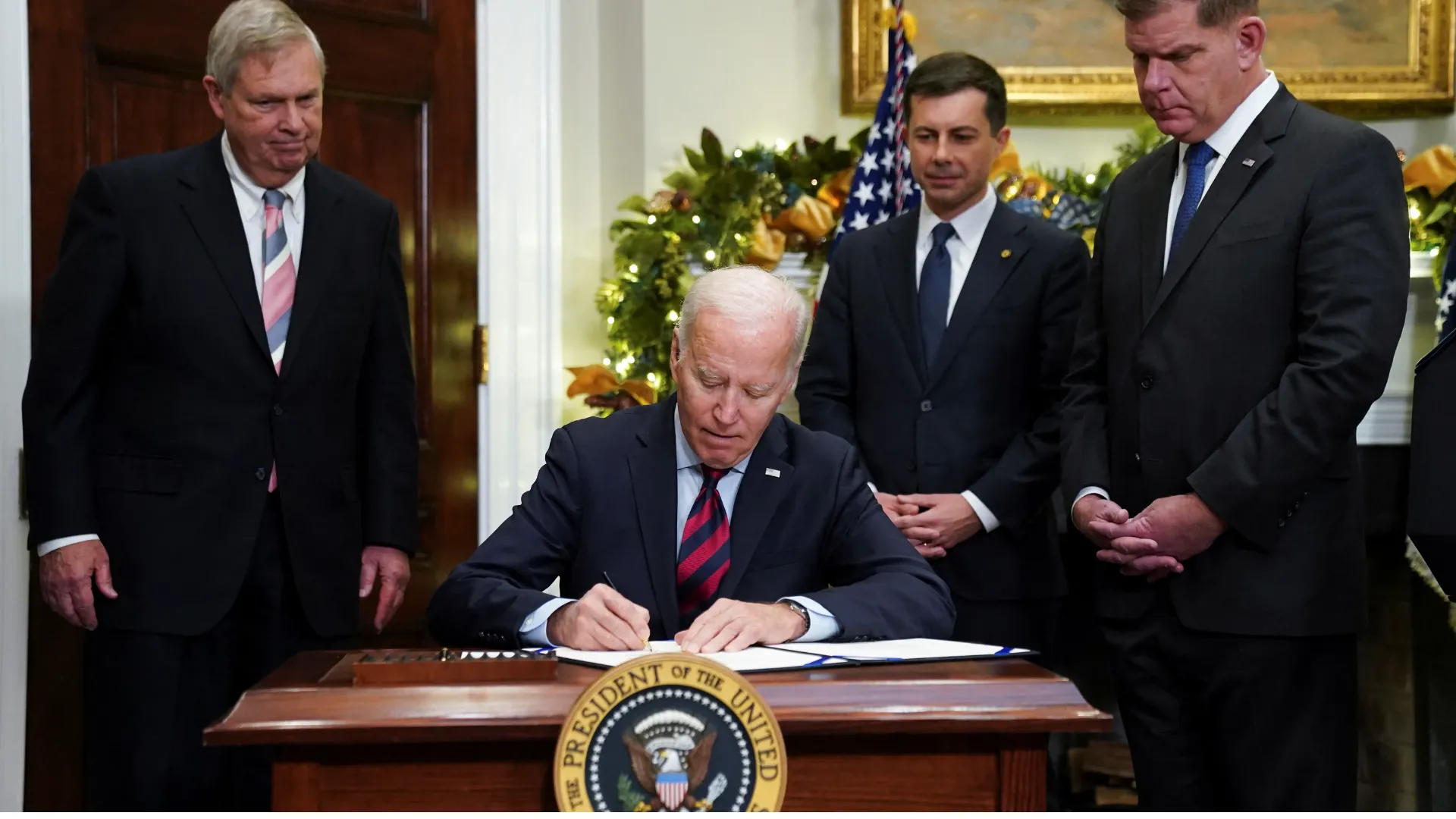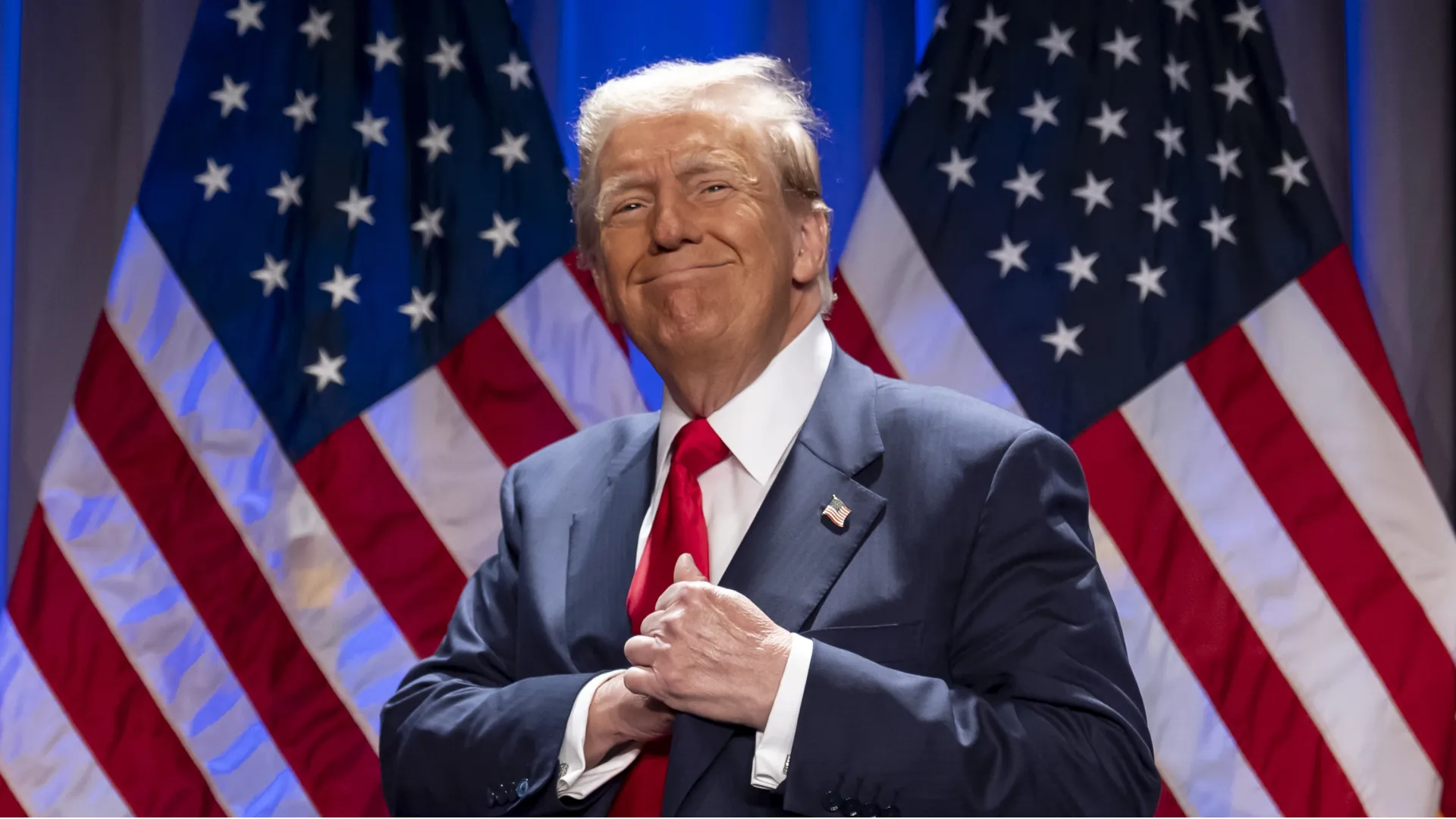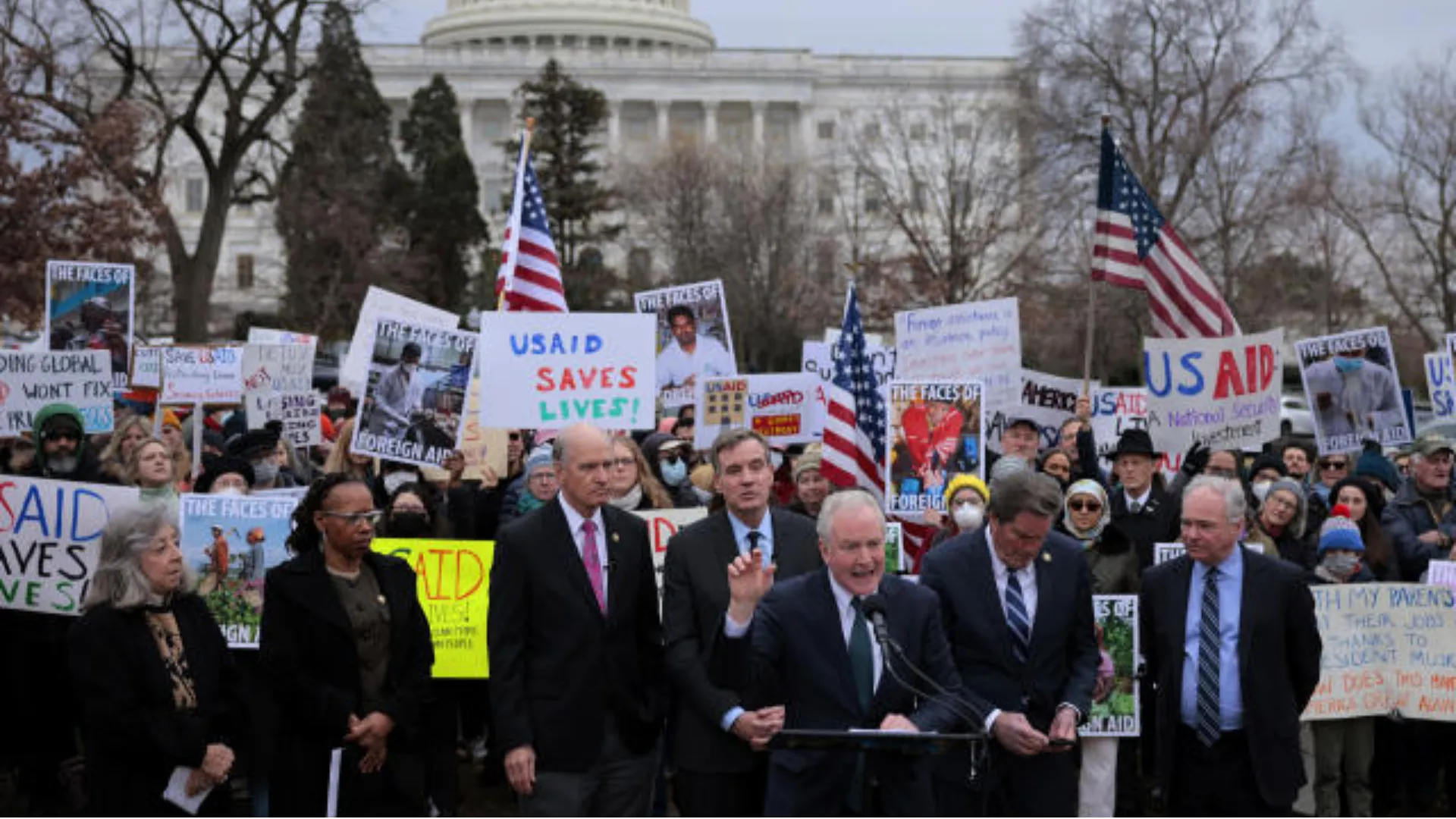A federal judge on Tuesday handed the Trump administration a sharp legal defeat, ruling that the White House must immediately restore The Associated Press’s full access to cover President Donald Trump after months of exclusion over a bizarre linguistic standoff — one centered on the outlet’s refusal to use the term “Gulf of America.”

The decision, issued by Judge Trevor McFadden, a Trump appointee to the U.S. District Court in Washington, D.C., found that the administration’s decision to bar AP journalists from presidential events violated the First Amendment and amounted to viewpoint-based discrimination.
“The Constitution requires no less,” McFadden wrote in a blistering 42-page opinion. “If the government opens its doors to some journalists... it cannot then shut those doors to others because of their viewpoints.”
The ruling comes after months of escalating tensions between the Trump White House and the AP — one of the world’s largest, most respected wire services. It also arrives as Trump increasingly weaponizes access to the presidency as both a reward for loyalty and a punishment for perceived defiance.
The conflict traces back to February, when Trump administration officials began selectively excluding The Associated Press from press pool events — including presidential travel, Oval Office meetings, and intimate Air Force One briefings.
The reason? The AP refused to rename the Gulf of Mexico in its coverage, standing firm against a push by Trump aides to rebrand it the “Gulf of America.”
White House officials, speaking off record, described the move as part of a larger campaign to “reclaim American terminology” in foreign policy and press narratives.
But for the AP, it was a line they couldn’t cross.
“Our job is to report facts, not rewrite geography,” one senior editor at the AP said anonymously. “This wasn’t about nationalism. It was about news integrity.”
After weeks of being excluded from events, the AP filed suit, alleging that the White House had violated the First Amendment and abused its power to retaliate against a media organization for its editorial independence.
The lawsuit argued that AP reporters were being left out of small pool events, a rotating system typically overseen by the White House Correspondents’ Association (WHCA), where a handful of journalists are given closer proximity to the president.
The wire service had traditionally been front-and-center in these pools due to its distribution to over 3,000 outlets in the U.S. and hundreds more internationally.
“Being in the pool isn’t a privilege. It’s a necessity for what we do,” said Zeke Miller, the AP’s White House correspondent, during a recent court hearing. “Without it, our ability to serve our readers and news clients is compromised.”
Photographer Evan Vucci, who captured the now-famous image of Trump bleeding and raising a fist after a rally shooting, also testified. “The only thing that’s been consistent is we’re not allowed,” he told the court. “Even when we’re told we’re in — we’re out.”
In his opinion, Judge McFadden rejected the White House’s claims that the ban was logistical or based on editorial quality.
“The government repeatedly characterizes the AP’s request as a demand for ‘extra special access,’” he wrote. “But that is not what the AP is asking for. All it wants, and all it gets, is a level playing field.”
He described the White House’s approach as “brazen” in its acknowledgement that the ban was due to the AP’s refusal to fall in line on language.
Even more pointedly, McFadden called out the Department of Justice’s own courtroom missteps, including a moment when government lawyer Brian Hudak likened the AP’s “eligibility” for press access to his own eligibility to play professional baseball.
“That analogy reveals more about the administration’s understanding of press freedom than they may have intended,” the judge wrote in a footnote.
While the “Gulf of America” dispute may seem absurd, media watchdogs warn it’s part of a larger pattern of control.
“This is Trumpism’s media strategy in miniature,” said one journalism professor. “Change the language. Punish dissent. Elevate friendly voices.”
The AP’s lawsuit claimed that conservative outlets with friendlier coverage were repeatedly given access, while mainstream publications were either sidelined or subjected to erratic rules.
The White House defended its actions as an attempt to diversify the press pool, bringing in smaller digital outlets “attuned to the day’s events.”
But the numbers told a different story. AP was excluded from 44 straight small pool events. Meanwhile, outlets like Newsmax and One America News maintained nearly daily access.
Tuesday’s ruling reverberated across Washington and the journalism world.
“This is a victory for everyone who believes that a free press matters,” said Lauren Easton, AP’s spokesperson. “Today’s ruling affirms the fundamental right of the press and public to speak freely without government retaliation.”
Veteran correspondents said the case exposed just how fragile the norms of presidential coverage have become under Trump’s second term.
“You used to have disagreements with administrations, sure. But you didn’t have to sue to stand in a room,” said one senior correspondent. “This is new. And dangerous.”
Even after the ruling, the White House appeared unmoved.
A few hours later, AP reporters were again denied access, this time to a dinner the president attended in Washington.
“They’re technically back in the room — but the door is still mostly shut,” one WHCA member texted anonymously.
In court, Justice Department lawyers had tried to downplay the impact, noting that AP had sometimes been allowed into events — usually when traveling with foreign leaders like Macron, Zelensky, or Starmer.
“So you're telling me press freedom is protected only if it comes stamped by another country's passport?” Judge McFadden shot back.
While McFadden’s ruling is a powerful rebuke, it’s not final. The judge gave the administration five days to file an emergency appeal, temporarily pausing the order.
Should the decision stand, it could reset the relationship between the White House and the press corps, reinforcing the idea that access cannot be used as a political reward system.
But for now, the signal is clear: even in Trump’s America, the First Amendment still holds.

And for the AP — and the journalists who cover the White House — the victory is as symbolic as it is practical.
“We don’t want a special seat,” said Vucci. “We just want to do our job.”






